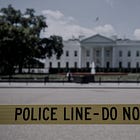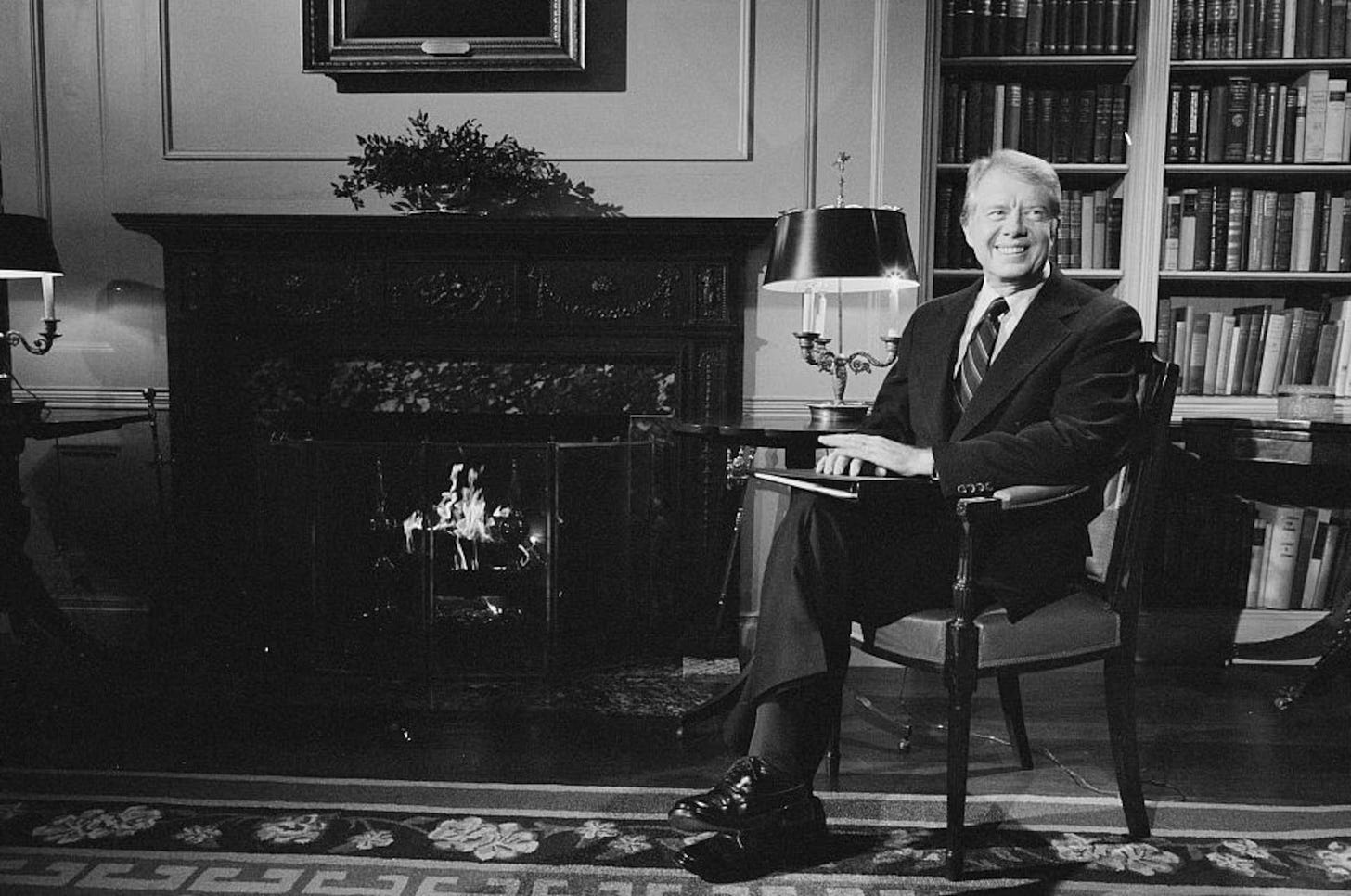Remembering Jimmy Carter
Update #21 | President Carter was an honorable politician. But he, too, lost an election due to treasonous election interference.
If you haven’t read the original post,
I highly recommend reading it first ↓
Update #21
I had planned a longer post for today, but in light of the breaking news of President Carter’s passing, I’m postponing it until tomorrow. Instead, I’ve written a few brief thoughts on the former President.
Remembering Jimmy Carter
The passing of former President Jimmy Carter at the age of 100—and in the final days of 2024—marks the end of an era for American politics. Carter, who served as the 39th President from 1977 to 1981, leaves behind a remarkable legacy defined not by the fleeting achievements of his time in office, but instead by his unwavering commitment to humanitarian work and global peace. After his presidency, Carter became an elder statesman, focusing on issues such as human rights, public health, and conflict resolution, with his work through the Carter Center earning him the Nobel Peace Prize in 2002. Known for his humility, honesty, and profound sense of duty, Carter’s impact extended far beyond the Oval Office.
He will be remembered as a leader who prioritized morality over politics and devoted his later years to building a better world for the most vulnerable. His death symbolizes the passing of a deeply principled figure who embodied the very best of American idealism, leaving an enduring legacy of compassion and service.
President Carter at the White House during a fireside chat, February 1, 1978. Library of Congress
America could use another honest president, right now. It’s fitting, then, that Carter was reportedly emotionally invested in Vice President Kamala Harris’ campaign. According to his grandson, Carter said, “I’m only trying to make it to vote for Kamala Harris.” It’s a heartbreaking injustice that he passed after Harris “lost,” but before the truth about Russia’s election interference is publicly revealed.
Carter’s devotion to truth, justice, and the common good stands in stark contrast to the turbulent political climate of today. As the nation grapples with the impact of foreign meddling in its elections, Carter’s idealism and integrity remind us of what is possible when leadership is guided by the best intentions rather than partisan interests. In a time when trust in public institutions is fragile, his legacy serves as both a call to action and a lasting example of how one individual’s commitment to peace and service can leave an indelible mark on the world.
Virtuous men like Jimmy Carter made America great. And now, men very, very unlike Carter threaten to squander that greatness. Let us make him proud by working to rebuild the moral foundation of our nation and ensuring that his ideals don’t die with him.
The 1980 October Surprise: How Republican treason stole the White House
As we reflect on Carter’s legacy, it feels relevant to note that his failed reelection campaign in 1980 wasn’t just about the political landscape—there are significant allegations that it, too, was shaped by covert election interference. The so-called "October Surprise" theory suggests that Reagan’s campaign, led by William Casey, actively worked to prolong the ongoing Iran hostage crisis to harm Carter’s re-election prospects. The central claim is that Casey and his operatives discouraged the hostages' release to ensure resolution of the crisis would not boost Carter's reelection chances.
New evidence from last year has strengthened this theory, showing that Casey orchestrated secret meetings with Iranian officials to delay the hostages' freedom until after the election. The hostages were released on January 20, 1981, only 20 minutes after Reagan finished his Inauguration Day victory speech. This timing, along with whispers of shady behind-the-scenes actions, show Reagan’s campaign manipulated the crisis for political gain—a treasonous act of betrayal that undermined American diplomacy and almost certainly altered the election's outcome.
This story gains added significance in the context of the broader history of Republican election interference, a pattern that continues to plague U.S. politics. From the October Surprise to more recent foreign meddling, the willingness to engage in underhanded tactics has become disturbingly familiar. For decades, the Republican Party has been linked to efforts—whether through secret foreign deals, illegal campaign activities, cyberattacks, or encouraging external interference—that undermine the integrity of American elections.
There are some eerie similarities between the 1980 election and 2024’s: a Democratic incumbent president beset by high inflation seeks the release of hostages held by Iranian-backed militants. This ongoing crisis in the Middle East becomes a wedge issue in the U.S. election. Negotiations to release the hostages are sabotaged and remain ineffectual until well after the election, at which point a deal is finally struck.
These tactics also mirror those of 1968, when secret dealings between Richard Nixon and Hanoi sabotaged both the chances for peace in Vietnam and the presidential hopes of Hubert Humphrey. At this point, it’s practically tradition.
Democrats continue to gravely misjudge the Republicans' ruthless drive for power. Reflecting on Carter’s legacy forces us to confront the uncomfortable truth about how decades of political gamesmanship has gotten us to this point, and now threatens to topple our democracy.
More soon. Please check back tomorrow for the post initially scheduled for today.
If we don’t take action to defend democracy, we don’t deserve to keep it.
If you have relevant information to contribute, please email: tinfoilmatt@proton.me
Read the next update:
The Race Against Time: How Congress Could Undo Election Interference
Update #22 | New year, new revelations, and a new path forward for democracy.





